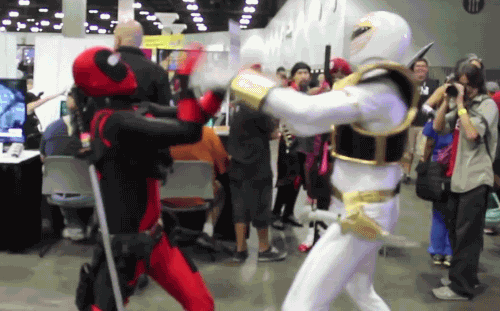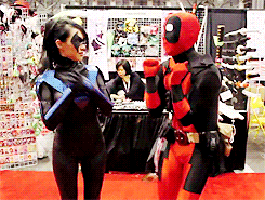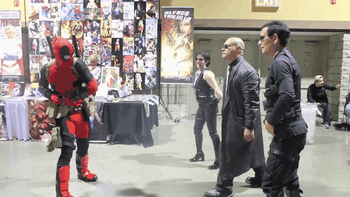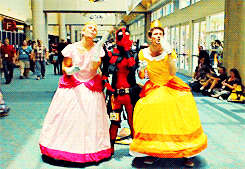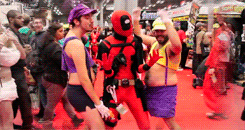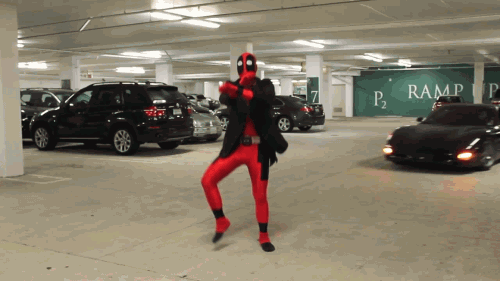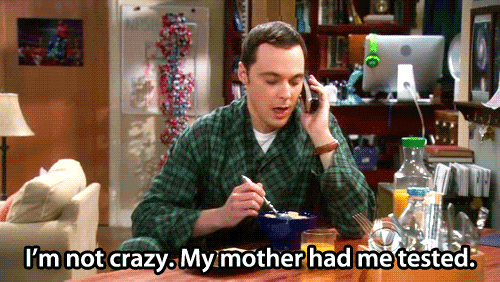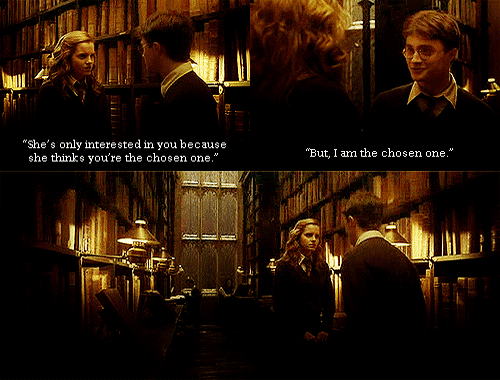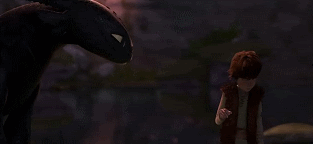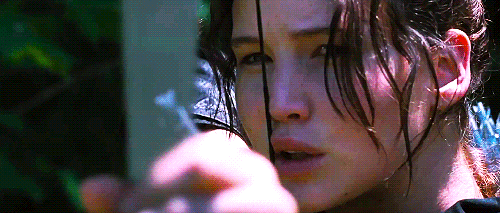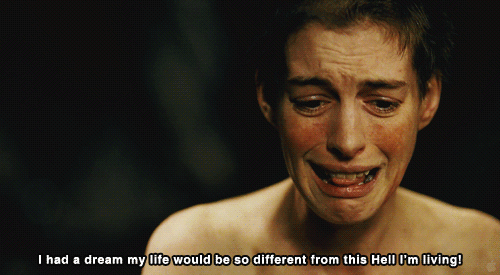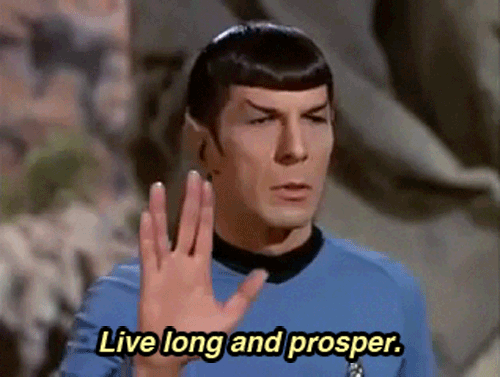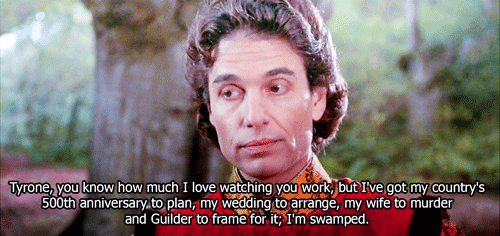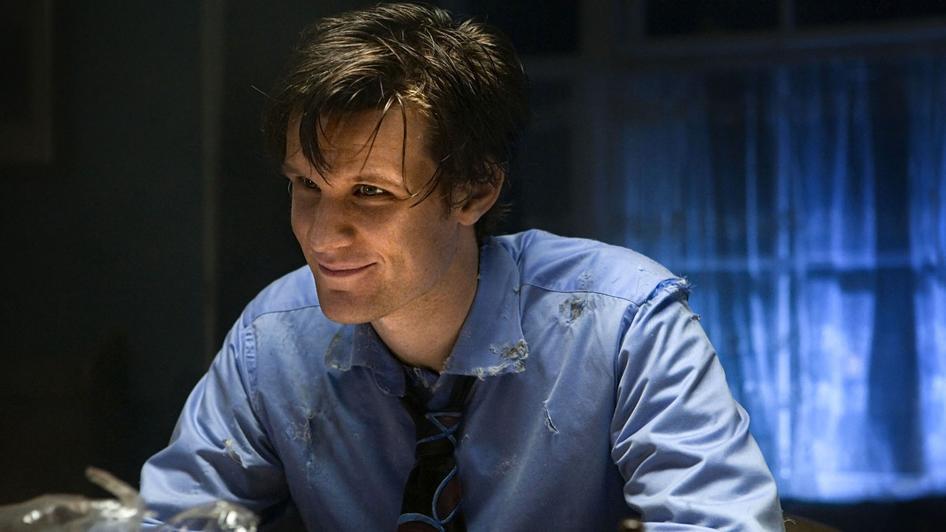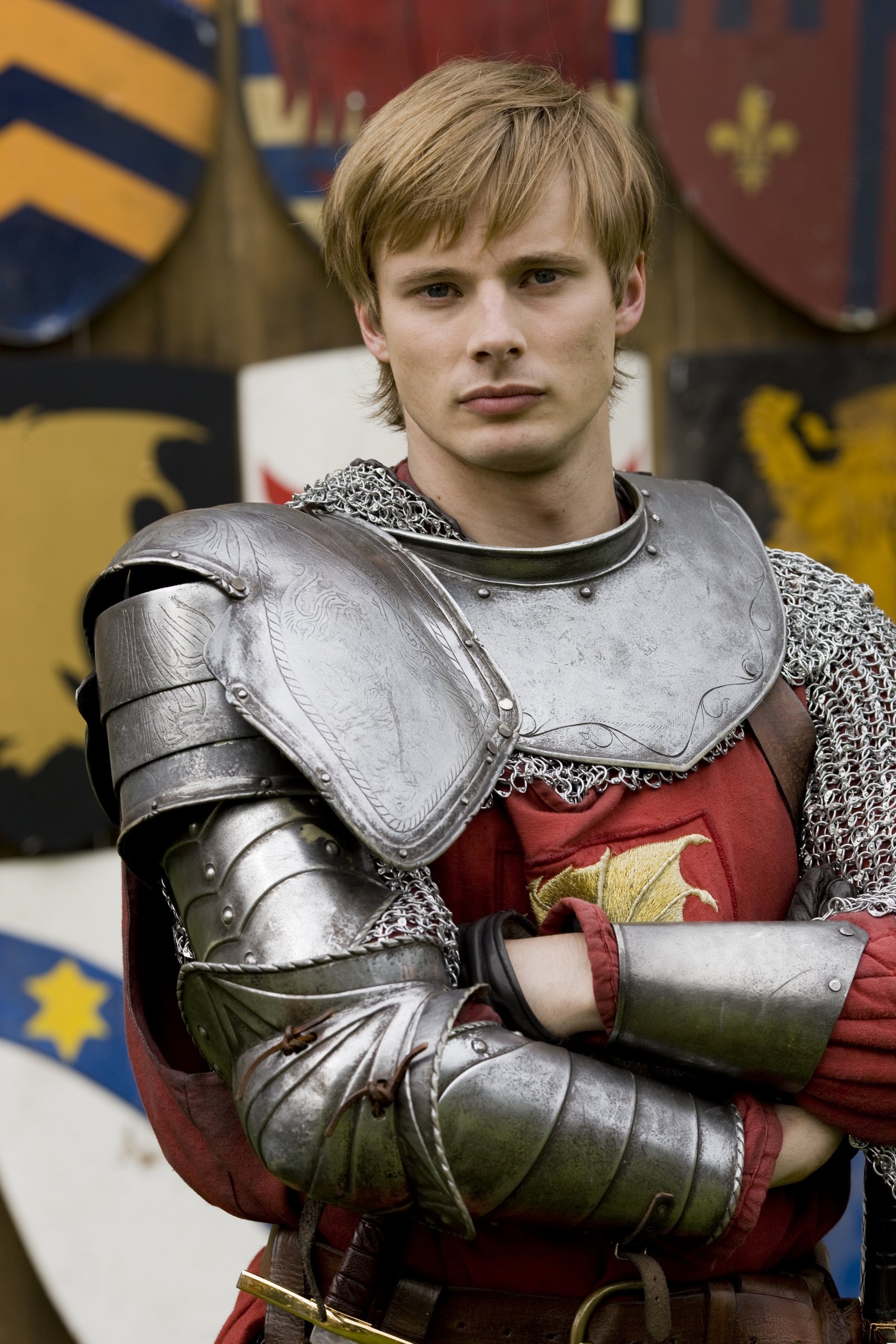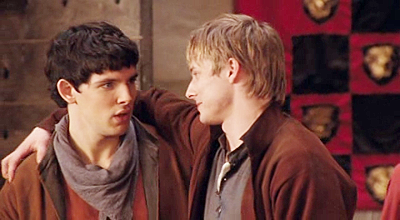For those of you not aware, March 6 was declared to be #Blackoutday by someone on tumblr. We are only liking, posting, and reblogging posts of/about black people. In honor of that, I'm listing my top 10 fictional characters who are black. In no particular order, they are:
Martha Jones (Doctor Who)
Martha Jones is a character whose value is often disputed in the Whovian community. Some people don't appreciate her, but I am one of the people who thinks she's totally awesome. Yes, she had a crush on the Doctor, but so did most of his female companions. She has clear goals of what she wants (to become a doctor), and she works towards those goals, eventually achieving them. Like Donna, she makes the Doctor earn her respect. She saves the ENTIRE WORLD from the Master while the Doctor stands by helplessly. She knows when to move on from the Doctor and find someone else, and she does. Which brings us to the next person on the list.
Mickey Smith (Doctor Who)
I bet most of you are thinking that Mickey Smith is stupid and lame. I did at first, but not any more. See, there's a little thing called character development. Throughout series 1 and 2, Mickey grows and changes to be smarter and more independent, among other things. The one thing that doesn't change is that Mickey is fiercely loyal. He keeps waiting for Rose, even when she disappears with the Doctor. When she's gone for a year and he's a suspect in her murder, he says nothing because he wants to protect her (also because he knows he won't be believed). When he realizes that she will never love him and treat him the way he deserves, he moves on, but he still does everything he can to help her and the Doctor. He joins Torchwood and is totally awesome. He marries Martha, who has also been unappreciated by the people in her life, and they go freelance to fight aliens. Mickey goes from a cowardly, clingy "tin dog" to a brave, loyal, and strong man.
Danny Pink (Doctor Who)
I was really worried Danny was going to be a poorly written character, but it turned out that Moffat actually did a good job with Danny. He reminds me a little of Mickey and a little of Rory, but he's different from both of them. He's really accepting and supportive of Clara, even to the point that he allows her to continue traveling with the Doctor. And he has a fierce loyalty towards Clara, doing everything he can to help her. I wasn't sure about the whole soldier thing, but I like the way it feeds into his character, making him brave, smart, and strong. Also, the "bad day" he had as a soldier gives him a strong sense of guilt which serves to make him more real and the "bad day" also gives him a heightened sense of morality, which I think is very important.
Gwen (Merlin)
My mom pointed out that there would not have been black people in Europe during the time of King Arthur, but oh well. I'll happily take POC representation over historical accuracy (unless it's a documentary, of course). Gwen is sweet and sensitive and smart, but she can also be super tough when she needs to be. Like Merlin, she helps make Arthur a better man.
Sam Wilson aka Falcon (The Avengers)
The Avengers are awesome. Every member of the Avengers is awesome, including Falcon. Because he's a newer member of the group, he doesn't get as much attention as he deserves. He's smart, funny, and talented. Also, his suit is totally awesome! Another score for superheroes who have super technology instead of superpowers.
Captain Ray Holt (Brooklyn Nine-Nine)
If you don't watch Brooklyn Nine-Nine, you should. It's awesome. Captain Ray Holt is one of the major characters (he's the captain of district 99 of the NYPD). Not only is he black, he's also gay. Representation for the win! He's strict and smart, but he can also be funny at times. And he's the only one with the willingness and ability to call Jake out on his antics.
Agent J (Men In Black)
Have you seen Men In Black? No? Go watch it right now. Don't come back until you've read it. Okay. Now you agree that Agent J is awesome, right? Will Smith is the bomb, and he portrays this role really well (I also really like Will Smith as Alex Hitchins in "Hitch").
Tiana (The Princess and the Frog)
I love Tiana. She's smart, funny, and most importantly, hardworking. I think she's a really great role model for people who want to fulfill their dreams. She's really good at being kind to and respectful of other people. Also, she doesn't put up with other people's bad behavior.
Sid (Galavant)
Okay, so he's basically the show's comic relief, but I still like him. He's funny and, as we learn in "Two Balls" (did they think through that title? Did they do that on purpose?), not nearly as bad as the average squire. He expresses resentment at being always ignored, and after the aforementioned episode, he does gain a little more respect from Galavant, who had to spend some time in Sid's shoes.
God (played by Morgan Freeman)*
Obviously nobody can know for sure exactly what God will be like until getting to heaven, but I always picture God as basically Morgan Freeman. I'm also really glad that they cast a black guy for God and not a white person. Jesus was middle-eastern (and Jewish), so I'm glad God was portrayed as POC as well.
*God is not a fictional character, but he is a character in the fictional movies Bruce Almighty and Evan Almighty. I wanted to include him in the list. Don't judge.
Alright so that's all well and good, but I need to mention something important: I had a lot of trouble thinking of enough people to put on this list. If I were making a list of my favorite fictional characters ever, I would have trouble limiting it. I think it's disgusting that POC characters are portrayed by white actors. We need more POC representation! *raises fist for emphasis* That is all. Have a nice day!
Showing posts with label General Fandom Stuff. Show all posts
Showing posts with label General Fandom Stuff. Show all posts
Friday, March 6, 2015
Thursday, March 5, 2015
Fandom School (7th period): How to Find Related Fandoms
So this was supposed to be written yesterday. Sorry. Let's just say that Fandom School had a snow day because my school didn't (but we do have one today). But enough about snow, let's talk about fandoms.
As a huge fangirl, I'm always looking for a new fandom to add to my life (more like become my life), and I'm sure many of you are the same. While you may like a wide variety of things, most people like fandoms in the same genre. But how do you find fandoms similar to the ones you're already in? This post will give you advice as well as a few fandom recommendations. (Note: if you want more detailed recommendations instead of an "if you like this, you might like that" approach, you should read this post.)
Step 1: Make a list of the fandoms you are in
What do you watch/read? What are you obsessed with? You have to figure this out first before you can find what else you might like.
Step 2: Find out what genre(s) you like
Now, look at your list. What categories do these fit into? I like several different genres, but most of my fandoms are sci-fi or fantasy. I also like musicals, mystery, and Disney. There are a few fandoms I'm in that don't fit in any of those categories (those are what we call outliers).
Step 3: Pick a few of your biggest fandoms
If you're like me, you have a LOT of fandoms (just take a look at my list on the right sidebar- and that's only the beginning!), so focus on the one's you're most obsessed with.
Step 4: The Google search
Search for similar shows/movies/books. For example...




As a huge fangirl, I'm always looking for a new fandom to add to my life (more like become my life), and I'm sure many of you are the same. While you may like a wide variety of things, most people like fandoms in the same genre. But how do you find fandoms similar to the ones you're already in? This post will give you advice as well as a few fandom recommendations. (Note: if you want more detailed recommendations instead of an "if you like this, you might like that" approach, you should read this post.)
Step 1: Make a list of the fandoms you are in
What do you watch/read? What are you obsessed with? You have to figure this out first before you can find what else you might like.
Step 2: Find out what genre(s) you like
Now, look at your list. What categories do these fit into? I like several different genres, but most of my fandoms are sci-fi or fantasy. I also like musicals, mystery, and Disney. There are a few fandoms I'm in that don't fit in any of those categories (those are what we call outliers).
Step 3: Pick a few of your biggest fandoms
If you're like me, you have a LOT of fandoms (just take a look at my list on the right sidebar- and that's only the beginning!), so focus on the one's you're most obsessed with.
Step 4: The Google search
Search for similar shows/movies/books. For example...




Step 5: The "Recommended for you" section
Netflix, Hulu, Amazon, and most places you would get books/movies/TV shows will give you recommendations based on your watching/browsing history. Check out the shows it recommends.
Step 6: See what your friends are watching/reading
Ask your friends (this includes online friends) what fandoms they are in. Chances are, they watch something you might want to start watching.
Step 7: Look for crossovers
Fanfiction.net has a section specifically for crossovers. On other fanfiction websites, you can search the works in one fandom for other fandoms. See what fandom is often put in a crossover with your fandom. You might like it!
Step 8: Investigate spin-offs
Many popular shows (and to a lesser extent, books and movies) have spin-offs. For example, Torchwood and The Sarah Jane Adventures are both crossovers of Doctor Who. Sometimes, spin-offs keep going even when the original is done.
Step 9: Look at various adaptations
If a book is popular enough, it will often be made into a movie or TV show. Arthur Conan Doyle's books about Sherlock Holmes have had many adaptations, including Sherlock and Elementary.
Step 10: See what else your favorite actors/writers are in
How many times have you watched a movie just because your favorite actor was in it? Yeah, probably a lot. For example, Broadchurch (which just started airing Season 2 on BBC America) has several actors from Doctor Who, including David Tennant, Arthur Darvill, and several other people who were minor characters in Doctor Who. You can also look at who writes your favorite shows and what else they write. Steven Moffat writes both Doctor Who and Sherlock (whether that's a good thing or a bad thing is for you to decide).
Finally, I provide you with some fandom recommendations.
If you like: Thor, Captain America, Iron Man, the Hulk
You might like: The Avengers, Agent Carter
If you like: Doctor Who
You might like: Torchwood, The Sarah Jane Adventures, Sherlock, Supernatural
If you like: Sherlock
You might like: Elementary, Agent Carter, Doctor Who, Supernatural
If you like: Star Wars
You might like: Star Trek, The Avengers, The Big Bang Theory, Doctor Who
If you like: American Idol
You might like: Sing Your Face Off, The Voice, Pitch Perfect
If you like: musicals and/or fantasy
You might like: Galavant
If you like: The Hunger Games
You might like: Divergent [note: read the books; the movies aren't that great]
If you like: Harry Potter, fantasy, Arthurian legend
You might like: Merlin
If you like: The Lord of the Rings, How to Train Your Dragon
You might like: Eragon
Wednesday, February 25, 2015
Fandom School (6th period): Cosplay
So just what is cosplay? Cosplay is, simply put, dressing up as a fictional character. It is most commonly seen at comic-con. As I haven't had the wonderful experience of cosplay yet, I'd like to share with you some examples.
Deadpool cosplay is always really funny, so here are some examples:
Also, as many Whovians know, David Tennant had a wrap-up party for the end of his time as the Tenth Doctor in which the entire cast and crew danced (and lip-synched) to "500 Miles". Fans responded by creating their own video in which they dressed up like Doctor Who characters and danced to "500 Miles". If you haven't already, go watch both videos now. That is all.
Deadpool cosplay is always really funny, so here are some examples:
Also, as many Whovians know, David Tennant had a wrap-up party for the end of his time as the Tenth Doctor in which the entire cast and crew danced (and lip-synched) to "500 Miles". Fans responded by creating their own video in which they dressed up like Doctor Who characters and danced to "500 Miles". If you haven't already, go watch both videos now. That is all.
Saturday, February 14, 2015
Fandom Love (Happy Valentine's Day)
Happy Valentine's Day, everyone! I'd like to start off by saying that I love all of you (platonically, of course- except for my boyfriend, who I love non-platonically). I know that some of you are in relationships and some of you are single, so I tried to make a post that will celebrate the day while not making anyone feel left out.
Let's talk about love. And because this is a fandom blog, let's use examples from fandoms.
There are several different types of love. I decided to use this website to decide how to categorize the different types. So, without further ado, here is the list.
Agape - selfless love. Agape is unconditional love that makes you donate to charity, be friendly with people you don't know, and do anything to help someone or make them happy.
Example: Merlin and Arthur in Merlin (more Merlin than Arthur), Harry in Harry Potter
Storge - family love. This is the love siblings have for each other (you may not like each other, but you do love each other), the love between a parent and child. It can also be a strong friendship.
Example: Elsa and Anna in Frozen, Sam and Dean in Supernatural (I think? I haven't seen much of that show)
Pragma - enduring love. This is the love between an old married couple, still faithful after decades of commitment. This is the love between old friends. This is the love that endures all odds.
Example: Amy and Rory in Doctor Who, Carl and Ellie in Up
Philautia - self-love. This isn't narcissism, but rather self-respect. This is accepting yourself just as you are. This is the belief in yourself that leads you to do great things.
Example: Peggy Carter from Captain America and Agent Carter, Martha from Doctor Who
Philia - shared experience. This is the love you have for your co-workers, the people in your sports team (or marching band), the people in your class.
Example: Harry, Ron, and Hermione in Harry Potter; the fellowship (Frodo, Sam, Merry, Pippin, Legolas, Gimli, Aragorn, and Boromir) in The Lord of the Rings
Ludus - flirtatious love. This is the feeling you get when you first fall in love with someone or when you notice a hot girl/guy. It's the kind of love that's all about having fun. It lasts for a short time until ending or developing into another type of love.
Example: Hazel and Augustus in The Fault In Our Stars, Eleven and River in Doctor Who (actually, their relationship is wibbly-wobbly timey-wimey and falls into several of these categories)
Eros - romantic and sexual love. This is the love in which you are really attracted to someone. Like Ludus, it only lasts so long; after a while it either dies out or develops into another type of love, such as pragma.
Example: Romeo and Juliet (I really hate that story, by the way), Jack and Rose in Titanic
So regardless of whether if there is a "special someone" in your life, remember to love the people around you. In fact, love everyone. Even those who don't deserve it - especially because those are the people who need it the most. Spread the love, everyone!
Let's talk about love. And because this is a fandom blog, let's use examples from fandoms.
There are several different types of love. I decided to use this website to decide how to categorize the different types. So, without further ado, here is the list.
Agape - selfless love. Agape is unconditional love that makes you donate to charity, be friendly with people you don't know, and do anything to help someone or make them happy.
Example: Merlin and Arthur in Merlin (more Merlin than Arthur), Harry in Harry Potter
Storge - family love. This is the love siblings have for each other (you may not like each other, but you do love each other), the love between a parent and child. It can also be a strong friendship.
Example: Elsa and Anna in Frozen, Sam and Dean in Supernatural (I think? I haven't seen much of that show)
Pragma - enduring love. This is the love between an old married couple, still faithful after decades of commitment. This is the love between old friends. This is the love that endures all odds.
Example: Amy and Rory in Doctor Who, Carl and Ellie in Up
Philautia - self-love. This isn't narcissism, but rather self-respect. This is accepting yourself just as you are. This is the belief in yourself that leads you to do great things.
Example: Peggy Carter from Captain America and Agent Carter, Martha from Doctor Who
Philia - shared experience. This is the love you have for your co-workers, the people in your sports team (or marching band), the people in your class.
Example: Harry, Ron, and Hermione in Harry Potter; the fellowship (Frodo, Sam, Merry, Pippin, Legolas, Gimli, Aragorn, and Boromir) in The Lord of the Rings
Ludus - flirtatious love. This is the feeling you get when you first fall in love with someone or when you notice a hot girl/guy. It's the kind of love that's all about having fun. It lasts for a short time until ending or developing into another type of love.
Example: Hazel and Augustus in The Fault In Our Stars, Eleven and River in Doctor Who (actually, their relationship is wibbly-wobbly timey-wimey and falls into several of these categories)
Eros - romantic and sexual love. This is the love in which you are really attracted to someone. Like Ludus, it only lasts so long; after a while it either dies out or develops into another type of love, such as pragma.
Example: Romeo and Juliet (I really hate that story, by the way), Jack and Rose in Titanic
So regardless of whether if there is a "special someone" in your life, remember to love the people around you. In fact, love everyone. Even those who don't deserve it - especially because those are the people who need it the most. Spread the love, everyone!
Friday, February 13, 2015
Fandom School (Lunch): How To Describe a Fandom
Greetings and welcome again to Fandom School! Sorry class is late, I got kinda busy. Anyway, onto today's topic.
If you're like me, you are in a lot of fandoms, and while some of your friends are in some of your fandoms, there are plenty of times people ask you "what's [insert fandom here] all about?". So for the synopsis-challenged, here are some descriptions of fandoms that you can use for explaining to your friends.
Avengers: a bunch of awesome superheroes (Captain America, Iron Man, the Hulk, Black Widow, Hawkeye, and Thor) team up against Loki.
Big Bang Theory: a sitcom about a really smart but really annoying scientist (Sheldon Cooper), his roommate, his friends, and his girlfriend
Broadchurch: a murder mystery set in a small town where everybody has something to hide. There's a good deal of rivalry between the two detectives on the case.
Doctor Who: a man (well, technically an alien) travels through time and space in a blue box. His goal is to save the universe, but he also does all sorts of fun, weird stuff while he's at it
Galavant: a musical comedy about a hero who had his "true love" stolen from him by the king and is convinced to go back to being a hero and rescue a kingdom because it gives him a chance to get back at the king and possibly reclaim his true love.
Harry Potter: a boy named Harry learns that he is a wizard and that he is destined to defeat the dark lord Voldemort. With his new friends Ron and Hermione, he sets out to do just that.
How to Train Your Dragon: like any good Viking, Hiccup wants to kill dragons, but when he meets toothless, his whole world changes and he discovers that maybe dragons and Vikings don't have to fight each other.
Hunger Games: a dystopian novel/movie in which there are 12 districts that send two tributes each year to fight to the death in a televised horror known as The Hunger Games. When Katniss volunteers to go instead of her sister Prim, she has to survive the Games and maybe even try to change the oppressive government.
Les Misérables: a book/musical/movie set in 19th-century France that follows the story of several people in unfortunate circumstances- Valjean, who was imprisoned for 20 years for a minor offense and breaks parole to start a new life; Javert, the officer who is determined to find Valjean because he believes that criminals cannot ever be good; Fantine, a woman whose life is destroyed when a man impregnates her and then leaves her, forcing to resort to terrible things; and many other characters who go through difficult times. (Sorry the summary is so long- if you want a shorter one, just use the first part of the sentence.)
Lord of the Rings: In the Hobbit (written before the Lord of the Rings, not as a prequel), a young hobbit named Bilbo gets dragged into an adventure with a wizard named Gandalf and a band of dwarves to reclaim the lonely mountain and its gold from the evil dragon Smaug. On the way, Bilbo finds a ring. In the Lord of the Rings, we learn that this ring is evil, and Frodo (Bilbo's son) sets out with three other hobbits, a dwarf, an elf, two men, and Gandalf to throw the ring into Mordor and destroy the evil wizard Sauron.
Merlin: a young warlock named Merlin travels to Camelot, where magic is banned, and becomes a manservant to Prince Arthur. Merlin learns that it is his destiny to protect Arthur, even though Arthur is (at first) a total jerk. So, Merlin saves Arthur over and over again, all the time keeping his magic a secret. (For those who know Arthurian legend, it's like an AU of that- Merlin and Arthur are roughly the same age, and magic is banned in Camelot.)
Pitch Perfect: an all-female collegiate a cappella group called the Bellas struggles to do well and make it into the finals of the collegiate a cappella competition, and there are also tensions within the group as the leader Aubrey is resistant to any new ideas.
Sherlock: an eccentric genius becomes the world's only consulting detective, solving cases for Scotland Yard with the help of his trusty sidekick, John Watson. (There have been many adaptations of the original Arthur Conan Doyle books, including Elementary (a CBS show), Sherlock (a BBC show), and several movies.)
Star Trek: the crew of a spaceship called the Enterprise aims to "boldly go where no man has gone before". They encounter all sorts of adventures.
Star Wars: the Galactic Empire is terrible, and the Rebel Alliance has been formed against it. Just when it seems like the Rebels are going to be crushed, a young man called Luke Skywalker is trained to be a jedi master and defeat the Empire once and for all.
The Fault In Our Stars: this beautifully sad book/movie follows the story of two teenagers, Hazel and Augustus, who fall in love. They know it won't last long, though, as Hazel has cancer and Augustus is a cancer survivor. They decide to make the most of the time they have.
The Princess Bride: this classic book/movie is a tale of true love and high adventure. Buttercup loses Westley, the love of her life, and is about to be wed to Prince Humperdinck, but everything changes when she is kidnapped and then is stolen from her original captors by a mysterious man in black.
If you're like me, you are in a lot of fandoms, and while some of your friends are in some of your fandoms, there are plenty of times people ask you "what's [insert fandom here] all about?". So for the synopsis-challenged, here are some descriptions of fandoms that you can use for explaining to your friends.
Avengers: a bunch of awesome superheroes (Captain America, Iron Man, the Hulk, Black Widow, Hawkeye, and Thor) team up against Loki.
Big Bang Theory: a sitcom about a really smart but really annoying scientist (Sheldon Cooper), his roommate, his friends, and his girlfriend
Broadchurch: a murder mystery set in a small town where everybody has something to hide. There's a good deal of rivalry between the two detectives on the case.
Doctor Who: a man (well, technically an alien) travels through time and space in a blue box. His goal is to save the universe, but he also does all sorts of fun, weird stuff while he's at it
Galavant: a musical comedy about a hero who had his "true love" stolen from him by the king and is convinced to go back to being a hero and rescue a kingdom because it gives him a chance to get back at the king and possibly reclaim his true love.
Harry Potter: a boy named Harry learns that he is a wizard and that he is destined to defeat the dark lord Voldemort. With his new friends Ron and Hermione, he sets out to do just that.
How to Train Your Dragon: like any good Viking, Hiccup wants to kill dragons, but when he meets toothless, his whole world changes and he discovers that maybe dragons and Vikings don't have to fight each other.
Hunger Games: a dystopian novel/movie in which there are 12 districts that send two tributes each year to fight to the death in a televised horror known as The Hunger Games. When Katniss volunteers to go instead of her sister Prim, she has to survive the Games and maybe even try to change the oppressive government.
Les Misérables: a book/musical/movie set in 19th-century France that follows the story of several people in unfortunate circumstances- Valjean, who was imprisoned for 20 years for a minor offense and breaks parole to start a new life; Javert, the officer who is determined to find Valjean because he believes that criminals cannot ever be good; Fantine, a woman whose life is destroyed when a man impregnates her and then leaves her, forcing to resort to terrible things; and many other characters who go through difficult times. (Sorry the summary is so long- if you want a shorter one, just use the first part of the sentence.)
Lord of the Rings: In the Hobbit (written before the Lord of the Rings, not as a prequel), a young hobbit named Bilbo gets dragged into an adventure with a wizard named Gandalf and a band of dwarves to reclaim the lonely mountain and its gold from the evil dragon Smaug. On the way, Bilbo finds a ring. In the Lord of the Rings, we learn that this ring is evil, and Frodo (Bilbo's son) sets out with three other hobbits, a dwarf, an elf, two men, and Gandalf to throw the ring into Mordor and destroy the evil wizard Sauron.
Merlin: a young warlock named Merlin travels to Camelot, where magic is banned, and becomes a manservant to Prince Arthur. Merlin learns that it is his destiny to protect Arthur, even though Arthur is (at first) a total jerk. So, Merlin saves Arthur over and over again, all the time keeping his magic a secret. (For those who know Arthurian legend, it's like an AU of that- Merlin and Arthur are roughly the same age, and magic is banned in Camelot.)
Pitch Perfect: an all-female collegiate a cappella group called the Bellas struggles to do well and make it into the finals of the collegiate a cappella competition, and there are also tensions within the group as the leader Aubrey is resistant to any new ideas.
Sherlock: an eccentric genius becomes the world's only consulting detective, solving cases for Scotland Yard with the help of his trusty sidekick, John Watson. (There have been many adaptations of the original Arthur Conan Doyle books, including Elementary (a CBS show), Sherlock (a BBC show), and several movies.)
Star Trek: the crew of a spaceship called the Enterprise aims to "boldly go where no man has gone before". They encounter all sorts of adventures.
Star Wars: the Galactic Empire is terrible, and the Rebel Alliance has been formed against it. Just when it seems like the Rebels are going to be crushed, a young man called Luke Skywalker is trained to be a jedi master and defeat the Empire once and for all.
The Fault In Our Stars: this beautifully sad book/movie follows the story of two teenagers, Hazel and Augustus, who fall in love. They know it won't last long, though, as Hazel has cancer and Augustus is a cancer survivor. They decide to make the most of the time they have.
The Princess Bride: this classic book/movie is a tale of true love and high adventure. Buttercup loses Westley, the love of her life, and is about to be wed to Prince Humperdinck, but everything changes when she is kidnapped and then is stolen from her original captors by a mysterious man in black.
Wednesday, January 21, 2015
Fandom School (2nd period): Real-Life Shipping
Happy Wednesday, and welcome again to Fandom School! Sorry I haven't been blogging super often (those of you who know me on google+, tumblr, or irl, feel free to hold me accountable). Anyways, the subject is shipping, and today's topic is real-life shipping.
I don't know why I didn't think to cover it in my list of Fanfiction terms (I'll update the list now), but there exists such a thing as real-person fiction, RPF for short. The name, however, is a bit deceptive. RPF doesn't depict real people, well, not exactly. RPF takes people who exist in the real world and makes them into fictional characters, adding personality traits, backstory, etc. that is not true (but isn't ridiculously far from the truth) to suit the author's needs and/or desires. "But that's not true!" you say. "RPF doesn't make characters up, they're just like the real people!" One, I never said RPF makes characters up, I said that RPF uses characters based on real people. Two, I provide here an example that disproves your theory: a fanfic in which Bradley James has magic.
Shipping in RPF is the same as it is in regular fanfics - well, almost. While regular fanfiction can change a character easily, RPF writers have to be careful about how they portray the people in their stories. You can't depict a person in a way that would make them uncomfortable (well, you can, but you shouldn't).
But there's also shipping between real people who aren't famous. Enter my personal experience. Jake, my close friend who I know from band (Horn is way better than saxaphone!), apparently is friendly enough with me (or I'm friendly enough with him? Idk) that people ship us. It's all David's fault - he started the rumors (yes, I'm naming names). The shippers are pretty insistent, despite the fact that I have a boyfriend (I love you, Alex!). At first I was really mad (like, I wanted to punch David in the face), but now I'm just sort of used to it. I still find it really annoying, though. A lot of times real-life shipping is not okay, namely when the people who are being shipped have specifically told the shippers to stop.
In fairness, though, I can't complain too much about it. After all, it may have something to do with how Alex became my boyfriend. Emily, a mutual friend of ours, kept shipping us, certain that we were in love (we were). Eventually, after over 2 years of being best friends, we confessed our love for each other (she was there when we said it! Remember how weird that was? I was so worried I would chicken out and not tell you, Alex. Lol). He moved away shortly afterwards, so it's a long-distance relationship. I ship us, he ships us, and I don't care about the idiots who ship me with Jake.
So, if you want to ship real people, here are a few things to keep in mind.
I don't know why I didn't think to cover it in my list of Fanfiction terms (I'll update the list now), but there exists such a thing as real-person fiction, RPF for short. The name, however, is a bit deceptive. RPF doesn't depict real people, well, not exactly. RPF takes people who exist in the real world and makes them into fictional characters, adding personality traits, backstory, etc. that is not true (but isn't ridiculously far from the truth) to suit the author's needs and/or desires. "But that's not true!" you say. "RPF doesn't make characters up, they're just like the real people!" One, I never said RPF makes characters up, I said that RPF uses characters based on real people. Two, I provide here an example that disproves your theory: a fanfic in which Bradley James has magic.
Shipping in RPF is the same as it is in regular fanfics - well, almost. While regular fanfiction can change a character easily, RPF writers have to be careful about how they portray the people in their stories. You can't depict a person in a way that would make them uncomfortable (well, you can, but you shouldn't).
But there's also shipping between real people who aren't famous. Enter my personal experience. Jake, my close friend who I know from band (Horn is way better than saxaphone!), apparently is friendly enough with me (or I'm friendly enough with him? Idk) that people ship us. It's all David's fault - he started the rumors (yes, I'm naming names). The shippers are pretty insistent, despite the fact that I have a boyfriend (I love you, Alex!). At first I was really mad (like, I wanted to punch David in the face), but now I'm just sort of used to it. I still find it really annoying, though. A lot of times real-life shipping is not okay, namely when the people who are being shipped have specifically told the shippers to stop.
In fairness, though, I can't complain too much about it. After all, it may have something to do with how Alex became my boyfriend. Emily, a mutual friend of ours, kept shipping us, certain that we were in love (we were). Eventually, after over 2 years of being best friends, we confessed our love for each other (she was there when we said it! Remember how weird that was? I was so worried I would chicken out and not tell you, Alex. Lol). He moved away shortly afterwards, so it's a long-distance relationship. I ship us, he ships us, and I don't care about the idiots who ship me with Jake.
So, if you want to ship real people, here are a few things to keep in mind.
- If you're writing RPF, remember that you are writing about a fictional character based on a real person, and be sure to distinguish fiction from reality
- No tinhatting. Tinhatting is when you try to convince people that your ship is real, saying that the people are in a secret relationship or some equally ridiculous theory. Tinhatting is incredibly disrespectful.
- Don't spread hate about a person who's "breaking up" your ship. If person A is dating person B, but you think person A belongs with person C, don't spread hate about person B or hope that A and B break up/get divorced.
- Don't be obnoxious about your ship. Talk about it with the people who ship it too - don't just shove your opinions in other people's faces
- Don't present a real person as having a very different sexuality from what they identify as
- Be kind to those who ship real people, even if you don't agree
- If you're shipping people you personally know, make sure they are okay with this. Don't ship people who don't want to be shipped.
Good day and happy shipping to you all.
Wednesday, January 14, 2015
Fandom School (1st period): Fanon
Today is a snow day (even though there is no snow), so I am very happy. Anyway, here's Fandom School. The subject is canon and the topic is fanon.
So what exactly is fanon? Fanon is like canon, except that it's created by the fans and not the original creator. Sometimes fanon conflicts with canon, and sometimes they coincide. Fanon doesn't have to be agreed on by everybody, but it is accepted by the majority of the fandom.
What can be fanon? In many cases, ships are fanon. For example, Johnlock and Merthur are accepted by most fans, even though they are not canon (in fact, Johnlock has canon against it). Events can also be fanon. In the LoTR fandom, it's fanon that Legolas and Aragorn knew each other before The Fellowship of The Ring. The Big Bang Theory has the fanon that Sheldon has Asperger's Syndrome.
What's really exciting is when fanon becomes canon. For example, fans began calling Voldemort "Voldy", which became canon in The Deathly Hallows. And now we know that a Weeping Angel will turn to stone if it sees its own reflection. And in Dilbert, the cat character was unanimously named by fans as Catbert, and creator Scott Adams decided to confirm that.
What examples of fanon do you know of?
So what exactly is fanon? Fanon is like canon, except that it's created by the fans and not the original creator. Sometimes fanon conflicts with canon, and sometimes they coincide. Fanon doesn't have to be agreed on by everybody, but it is accepted by the majority of the fandom.
What can be fanon? In many cases, ships are fanon. For example, Johnlock and Merthur are accepted by most fans, even though they are not canon (in fact, Johnlock has canon against it). Events can also be fanon. In the LoTR fandom, it's fanon that Legolas and Aragorn knew each other before The Fellowship of The Ring. The Big Bang Theory has the fanon that Sheldon has Asperger's Syndrome.
What's really exciting is when fanon becomes canon. For example, fans began calling Voldemort "Voldy", which became canon in The Deathly Hallows. And now we know that a Weeping Angel will turn to stone if it sees its own reflection. And in Dilbert, the cat character was unanimously named by fans as Catbert, and creator Scott Adams decided to confirm that.
What examples of fanon do you know of?
Saturday, January 10, 2015
"Strong Female" or Well-Written Female?
Gah! Enough with the "strong female"s already! When we say we want a strong female character, we mean we want a well-written, in-depth character who is independent and has lots of great personality traits but also weaknesses like any human (or non-human life-form, as the case may be) - NOT a physically strong "badass" character with no development beyond that! Seriously! So much frustration! But I have to get this rant out.
Unsurprisingly, I'm not the first person to get upset about this particular trend. +Emily Ecrivaine has also written a post about it. I recommend that you check it out, but as great as that post is, I also want to weigh in on the issue, hence this post.
I'm gonna say this right now: just because a character is strong and tough and smart and independent does not mean she is a good character (I'm talking about good/bad, not good/evil). It's like Hollywood has gone too far in the opposite direction from the weak, stupid, careless girls it's portrayed in the past (those are no good, either, just to be clear).
It's time to meet in the middle. A good character needs strengths and weaknesses; leaving one out is like drawing a person really beautiful and detailed - but leaving out an entire half. You need them both to complement each other, else you get a 2-dimensional character that leaves your readers/viewers upset (and writing rants like this).
Now that I've said 2-dimensional, the mathematician in me wants to make this analogy accurate. So what do I mean by 2-dimensional? Well, let's say the first dimension is appearance (and all the other stuff you notice at first glance/description). Thankfully, most writers (I say most, not all) are able to go a bit deeper than that. The second dimension is strengths, the third dimension is weaknesses, and the fourth dimension (yes, I'm adding a fourth dimension) is character development. Unlike physical dimensions (height, width, volume), character dimensions aren't in a specific order. If your character has an appearance and strengths, he/she is 2-dimensional. If your character has an appearance and weaknesses, he/she is also 2-dimensional. If your character has an appearance, strengths, weaknesses, and character development, he/she is 4-dimensional. (Note: I said there isn't any order, but it's kind of hard to have character development without strengths and weaknesses.)
Got that? You need several different elements to make a character. You can't just slap a vaguely defined personality and a story arc on them and call it good. I mean, think about it: you're creating a person. If people were as bad as some characters, we would have a very boring world. And if you're going to make a work of fiction, why would you make such bad characters? Why would you create a boring world when you could create an awesome one? Why put so little work into a character when you could make somebody amazing?
There's not much I can do about, say, Moffat's writing, but I can make sure that the characters I create are real (no, I don't mean they really exist; I mean realistic), and I can ask you to do the same. Let's make the world of fiction a better place.
Unsurprisingly, I'm not the first person to get upset about this particular trend. +Emily Ecrivaine has also written a post about it. I recommend that you check it out, but as great as that post is, I also want to weigh in on the issue, hence this post.
I'm gonna say this right now: just because a character is strong and tough and smart and independent does not mean she is a good character (I'm talking about good/bad, not good/evil). It's like Hollywood has gone too far in the opposite direction from the weak, stupid, careless girls it's portrayed in the past (those are no good, either, just to be clear).
It's time to meet in the middle. A good character needs strengths and weaknesses; leaving one out is like drawing a person really beautiful and detailed - but leaving out an entire half. You need them both to complement each other, else you get a 2-dimensional character that leaves your readers/viewers upset (and writing rants like this).
Now that I've said 2-dimensional, the mathematician in me wants to make this analogy accurate. So what do I mean by 2-dimensional? Well, let's say the first dimension is appearance (and all the other stuff you notice at first glance/description). Thankfully, most writers (I say most, not all) are able to go a bit deeper than that. The second dimension is strengths, the third dimension is weaknesses, and the fourth dimension (yes, I'm adding a fourth dimension) is character development. Unlike physical dimensions (height, width, volume), character dimensions aren't in a specific order. If your character has an appearance and strengths, he/she is 2-dimensional. If your character has an appearance and weaknesses, he/she is also 2-dimensional. If your character has an appearance, strengths, weaknesses, and character development, he/she is 4-dimensional. (Note: I said there isn't any order, but it's kind of hard to have character development without strengths and weaknesses.)
Got that? You need several different elements to make a character. You can't just slap a vaguely defined personality and a story arc on them and call it good. I mean, think about it: you're creating a person. If people were as bad as some characters, we would have a very boring world. And if you're going to make a work of fiction, why would you make such bad characters? Why would you create a boring world when you could create an awesome one? Why put so little work into a character when you could make somebody amazing?
There's not much I can do about, say, Moffat's writing, but I can make sure that the characters I create are real (no, I don't mean they really exist; I mean realistic), and I can ask you to do the same. Let's make the world of fiction a better place.
------------------------------
Coming back to this, I realize I should have included some examples of 2-dimensional characters, so here you are:
Rose Tyler (Doctor Who)
(Check out +Emily Ecrivaine's post about her dislike of Rose.)
What she has: appearance, weaknesses
What I think of her: she just stands around and waits for the Doctor to help her. She's not that smart, and she's not particularly strong. I don't see any significant strengths in her (she has compassion, but so do pretty much all the companions). She whines too much, and she always wanders off and disobeys direct orders (not that she's the only one to do so). She's extremely selfish and jealous. And she's presented as the best companion, the Doctor's love... no. Just no.
(I'll come back to this later, but someone else needs the computer. I will provide more examples, don't worry!)
Friday, January 9, 2015
Bookworm, Movie Buff, or TV Fanatic?
Actually, I'm all three. Which one(s) are you? Here are some identifying characteristics.
Bookworm:
Bookworm:
- trying to find the perfect position to read in (spoiler alert: there is none)
- opening a new book, smelling the pages and stroking the cover (or is that just me?)
- watching the movie adaptation and realizing that it is awful compared to, or just vastly different from, the book
- realizing that you've exhausted your personal library
- going to the public library and being overwhelmed by the vast selection
- checking out lots of books and going on a book-reading craze
- staying up all night to finish a really good book
- waiting in line forever to get a book signed by the author
Movie buff:
- eagerly watching and re-watching the trailer of a movie
- getting excited about the knowledge that a movie is being filmed
- waiting in line for way too long to get a ticket that's way too expensive
- popcorn!
- sitting through all of the previews, fixing your eyes on the screen lest you miss the beginning of the movie
stalkingpaying attention to information about a particular actor- screaming in delight when you find your favorite actor on twitter, tumblr, etc.
- watching a movie at home so you are free to squeal in delight at the good parts and cry at the sad parts
TV fanatic:
- counting the days until the next episode
- getting really excited on the day your favorite show airs
- clearing your schedule to watch your favorite show right as it happens (interruptions will be exterminated)
- setting up your DVR to make sure you never miss an episode
- watching your favorite episodes over and over and over again
- binge-watching entire series (good luck binge-watching all episodes of Doctor Who!)
- going insane during hiatus
- feeling empty and lost when your show is over; demanding that your show needs to be brought back (I'm talking about you, Merlin)
And of course there are a few characteristics that apply to all three kinds of fans:
- covering your ears and being cautious on the internet because spoilers
- allowing your fandom(s) to consume you and take away all traces of school or social life
- complaining about plot points you don't like and praising those you do
- getting super excited when you find out about a new work (book/movie/episode)
- writing fanfiction and creating other fan works
- dreaming of the day when you will get to meet the creator of your favorite works
- falling in love with a character and/or actor
- doing cosplay/roleplay
- feeling awesome when you meet another fan
- obsessively talking about your fandom(s), even to people who don't care
- being awesome (yep, that's part of being a fanwarrior. We are the epitome of awesome.)
Enjoy the fandom, whatever kind of fan you are.
Wednesday, December 17, 2014
Fandom School (5th period): Why Is My Show On Hiatus?!
I'f you've read How To Survive Hiatus and this post showcasing hiatus-induced madness (or if you're in, say, the Sherlock fandom), you know that hiatus is awful. It drives people insane, makes them lose interest in the show, and generally causes chaos. So why do it?
Here are a few reasons why producers choose to put a show on hiatus:
Here are a few reasons why producers choose to put a show on hiatus:
- Natural between-seasons break: name one show that films continuously and never takes a break. Did you come up with any? I thought not. (If you did, let me know in the comments; I'm curious.) All shows take a break in between seasons. This break can last from weeks to months- any longer than a few months, and it's a proper hiatus.
- Demand for actors/actresses: take Benedict Cumberbatch. Everyone wants him. And I'm not just talking about the Cumbercollective; he's being cast in all sorts of amazing movies and TV shows. He can't film two things at once, so he has to take a break for other things.
- Time required to write: episodes can take a long time to write, especially in the case of Sherlock. 90-minute episodes require a lot of thought, effort, and time. After all, you wouldn't want them to hurry and give you a bad product, would you?
- Time required to film: a typical episode takes longer than a week to write, so you can't air a new episode every week with no breaks. That's simple math.
- Complications: take Doctor Who for example. Every time an old Doctor leaves, a new actor has to be found to be the next Doctor. There was a break between the end of series 4 and series 5 (with a few specials, but not a regular stream of episodes), and I suspect it was because BBC was looking for someone to be the Eleventh Doctor. (I don't know if that's the reason. Does anyone know?)
- Lack of interest: if a show becomes unpopular, it may go on hiatus or even be cancelled.
Friday, December 5, 2014
Lightsaber vs. Sonic Screwdriver: The Use of Weapons/Tools In Fandoms
In every good fandom, there comes a time where there is a need for a weapon or a tool. But which one to use? This post examines various fictional and real weapons and tools used in fandoms.
- Lightsabers (Star Wars): like a sword, but with light. The "light" is formed of plasma. The lightsaber is dangerous and difficult to wield, but in the hands of a Jedi, it's a formidable weapon. See this post for more information about lightsabers. Coolness rating: 10/10. Dangerousness rating: 10/10. Usefulness rating: 8/10.
- Sonic Screwdriver (Doctor Who): like a screwdriver, but a bit more sonic. When the button is pressed, it emits a light and a buzzing sound. It can't wound, maim, or kill, but it is a useful tool. It can unlock doors, intercept signals, operating machinery and computers, and many other things (as listed on the TARDIS wiki). However, it doesn't do wood. See this post on what I would do if I had a sonic screwdriver. Coolness rating: 9/10. Dangerousness rating: 5/10. Usefulness rating: 10/10.
- Gandalf's Staff (The Lord of the Rings): a staff used by Gandalf for casting spells. "You shall not pass!" Coolness rating: 8/10. Dangerousness rating: 9/10. Usefulness rating: 9/10.
- Andúril (The Lord of the Rings): the sword used by Aragorn. It was broken into 6 parts, but then it was reforged. Coolness rating: 7/10. Dangerousness rating: 8/10. Usefulness rating: 7/10.
- Sting (The Hobbit, The Lord of the Rings): Bilbo finds this sword that glows blue when Orcs are near. (We discover later that it's actually more of a letter-opener because it's so small.) He puts it to good use, then gives it to his son, Frodo. Coolness rating: 6/10. Dangerousness rating: 8/10. Usefulness rating: 8/10.
- Mjölnir (Thor): Thor's hammer. Very good at smashing things. Can only be held by those who are worthy. Coolness rating: 8/10. Dangerousness rating: 9/10. Usefulness rating: 9/10.
- Phaser (Star Trek): like a stun gun, but more powerful. Can stun, heat, kill, or disintegrate living creatures. It can also damage shields and cut through walls. Coolness rating: 6/10. Dangerousness rating: 8/10. Usefulness rating: 10/10.
- The Neuralizer (Men In Black): slightly larger than a pen, this device wipes a person's memory for as long an amount of time as the user chooses with just a flash of light. Afterwards, the people who were affected are highly susceptible to suggestion. Coolness rating: 9/10. Dangerousness rating: 8/10. Usefulness rating: 9/10.
- The Point-of-View Gun (The Hitchhiker's Guide to the Galaxy): when fired, this weapon forces anyone in its path to understand and reveal the shooter's thoughts. Coolness rating: 8/10. Dangerousness rating: 4/10. Usefulness rating: 8/10.
- Blue Shell (Mario Kart): a bomb that explodes on whoever is in first place, taking out them and anyone else in the vicinity. This slows them down enough that you have a chance of getting ahead. Coolness rating: 5/10. Dangerousness rating: 8/10. Usefulness rating: 8/10.
Wednesday, December 3, 2014
Fandom School (4th period): How To Find The Best Fanfiction
Hello, and welcome again to Fandom School! If you read fanfiction (check out the page with my fanfics or my post about different types of fanfiction), chances are, you don't read just anything that comes your way. You skip over the awful ones, and if you start a fanfic only to find an appalling lack of grammar and abundance of Mary Sues (see Emily Ecrievane's post about fanfiction if you don't know what a Mary Sue is), you're out of there in a heartbeat. You want to read the awesome fanfic, not the awful stuff. But how do you tell which is which? There are a few things you can do before you even click the link to read a fanfic. This will serve as a guide to readers, but fanfic writers can also use this to make sure their fanfic will catch people's attention and get read.
- Use the filters. This shows you only the fanfics that have your criteria. What you can filter depends on what website you're reading fanfiction on. AO3 allows you to filter these terms: any [general search terms], title, author, complete/incomplete, single-chapter/multi-chapter, word count, language, fandoms, rating, categories, characters, relationships, additional tags, hits, kudos, comments, and bookmarks. Fanfiction.net allows you to filter these terms: any [general search terms], regular/crossover, fandom, time range [update date/publish date], genre, rating, language, word count, complete/incomplete, and characters.
- Read the title. A good title is an indication of a good fanfic. The more interesting and original the title, the more likely the fanfic is to be interesting and original. That being said, a good fanfic could have a bad title and vice versa.
- Read the summary. The point of a summary is to give you an idea of what the fic is like. A good summary will give the reader an understanding of the fanfic's plot without giving any spoilers. A good summary will also convince the reader of the author's competency. If a summary says "I suck at summaries" or "I don't know, just read it" or "yeah, that's about it", or anything like that, the reader will wonder if the fic is actually any good and will likely abandon it for a more promising one. Also, if the summary has any spelling or grammatical errors, there is very little chance that people will read it.
- Look at the tags. At least on AO3, you can give your fic additional tags, which will help the reader understand what the fic is about. Sometimes, tags just reiterate what's in the summary, but sometimes they involve things not mentioned in the summary. And in some cases, they enhance the meaning. For example, if you see a fic that has the warning "Major Character Death", you might not want to read it, but if you see that it is also tagged "Canonical Character Death", that might change your mind. Tags might include trigger warnings for various things. They could also just provide amusing commentary on the story.
- Read the warnings. On AO3, a story can have any or all of these warnings: Major Character Death, Graphic Depictions of Violence, Rape/Non-Con, or Underage. An author can also say that no archive warnings apply or choose not to use archive warnings.
- Read the ratings. There are a few rating systems, so here's a chart comparing the most common ones.
MPAA AO3 FF.net Meaning G G K Intended for general audience 5 years and older. Content should be free of any coarse language, violence, and adult themes. PG n/a K+ Suitable for more mature childen, 9 years and older, with minor action violence without serious injury. May contain mild coarse language. Should not contain any adult themes. PG-13 T T Suitable for teens, 13 years and older, with some violence, minor coarse language, and minor suggestive adult themes. R M M Not suitable for children or teens below the age of 16 with non-explicit suggestive adult themes, references to some violence, or coarse language. Fiction M can contain adult language, themes and suggestions. Detailed descriptions of physical interaction of sexual or violent nature is considered Fiction MA. NC-17 E MA Content is only suitable for mature adults. May contain explicit language and adult themes. - Read the categories. AO3 has categories based on relationships: F/M, M/M, F/F, Multi (multiple types of relationships), Gen (no relationships, or they are not the main focus of the story), Other (e.g., threesomes). If you don't want to read slash, you can choose not to view M/M or F/F stories. If you don't want any relationships, you can choose Gen.
- Read the pairings. Does it have a ship you like? One you hate? If you don't like the ships listed, you probably won't like the fanfic. However, if a fic lists your OTP, you will probably want to read that fic.
- Look at the statistics. How many hits does the story have? Kudos/favorites? Comments/reviews? High numbers increase the likelihood that a fanfic is good. Low numbers may mean a fic is bad, but it could also just mean that it's undiscovered.
- Read the comments/reviews. Warning: if you do this, you will probably get spoilers. However, you will get a good sense of if the people reading the fic like it or not. Positive reviews make a person more likely to read a fic; negative reviews may turn potential readers away. Also, does the the author respond to comments? If he/she does, that shows interest in the readers and indicates that the author cares about making a good product and ensuring that other like it, too.
- Read the author's note(s). The notes an author has left may include useful information. For example, the author might warn that the fic will be updated sporadically. Or, they might say that the fic is abandoned. The notes might mention the author's stance on derivative works. They could include all sorts of information that the readers may want to know before reading the fic.
- Pay attention to the author. Is it an author you know? If you see that a fic is by an author you know and love, you will be more likely to read it. Inversely, if you've read a terrible fic by a certain author, you won't want to read their other fics. Also, the author's name itself matters. Is it interesting? Relevant? If it is, you'll be more likely to read the fic. A boring or irrelevant pen name may turn readers off.
- Read the first few sentences. Are you interested? Does it seem like a good fanfic? It doesn't have to start off spectacularly, but if you don't find yourself wanting to read more after the first few sentences, it probably isn't that great.
So, with that in mind, what should authors do to make sure their fanfiction gets read?
- Come up with a good title. Before publishing your fanfic, think carefully about the title. If your work is incomplete, make sure you know enough of where it's going to pick an accurate title. Also, do a preliminary search to see if there are other fics with the same title. Try to pick a title that nobody else has used yet.
- Write a good summary. Make sure it covers the main idea(s) of your fanfic, but doesn't give too much detail. Makes sure it's interesting enough to capture your readers' attention. It doesn't matter how good your fic is, if people are falling asleep reading your summary, they won't read your fic.
- Be sure to add all applicable tags. It's all well and good if you write an amazing fic, but if people can't find it, they won't ever know. Also, see what tags come up when you start typing. Make sure to use the well-known tags instead of a variant name for the same thing.
- Give your fanfic the appropriate warning(s). Fear of the unknown is strong. Don't choose not to use archive warnings; it will likely hurt more than it will help. Don't say no warnings apply if warnings do apply; people will get upset.
- Give your fanfic the appropriate rating. Don't rate something lower than it really is; readers will be scandalized when they get more than they bargained for, and they won't want to read any more, nor will they read any of your other fanfics. Don't rate your fic too high, or people who would otherwise read it will shrink away in fear.
- Choose the appropriate categories. Again, this is a way for someone to find your fic. It's also a way for someone to decide if the fic is for them.
- Choose all relevant pairings. Right up front, let people know who's getting together with whom. This will help readers decide if your fic is for them.
- Look at your statistics. What kind of stories get more hits, comments, and kudos? Write more of those. What kind of stories get fewer hits, fewer (or more negative) comments, and fewer kudos? Write fewer of those.
- Write author's notes. If you have anything you feel like your readers should know that isn't included in the summary, warnings, or tags, then you should include it in an author's note.
- Choose a good pen name. When I joined fanfiction.net, I made the mistake of signing in with my google account. Yes, it was convenient, but it gave me a pen name from an email address I made when I was 10 (or however old I was at the time) which is slightly embarrassing and completely irrelevant to the fandom world. When I joined AO3, I carefully considered my username, deciding on "vortexofdeduction" to match this blog, my tumblr, and my twitter (well technically, my twitter is @vortexdeduction because @vortexofdeduction is too long).
- Maintain your integrity as an author. One bad fanfic listed under your name could stop others from reading anything else by you. On the other hand, if you become popular enough to gain a good reputation, more people will read your stories.
- Write a good first few sentences. You have a short time to hook your readers in and make them want to continue. Don't waste it on pointless chatter or dull background. Start with something to shock or surprise your readers, something to fascinate them, something they will remember. Likewise, write a good last few sentences. You want to leave the reader with a good, lasting impression. Yes, the stuff in between matters, but the beginning and the end are the most important parts of your fanfic.
Sunday, November 30, 2014
How To Choose Your Fandom
If you're reading this blog, you're probably in at least one fandom, but maybe you want more. If that's the case, read on to figure out which fandom may be best for you. First of all, consider the genre. Here are my fandoms, organized by genre, with a brief summary of each.
Fantasy
Merlin
Media form: TV
Key features: Arthurian legend, magic, destiny, sarcasm and cheek
Synopsis: (based off of Arthurian legend) Merlin, a young warlock (i.e., born with magic), travels to Camelot, where king Uther Pendragon has banned magic. Merlin becomes prince Arthur's manservant and discovers that it is his destiny to protect Arthur. He saves Arthur's life countless times, all the while hiding his magic.
Harry Potter
Media form: books, movies
Key features: magic, evil wizards and witches, good wizards and witches, fun and shenanigans but also serious stuff
Synopsis: Harry Potter, called "The Boy Who Lived" because the dark lord Voldemort was unable to kill him, finds out that he is a wizard and goes to Hogwarts, a school for wizards and witches. Voldemort keeps trying to regain power, and Harry, together with his friends Ron and Hermione, tries to stop him.
The Lord of the Rings
Media form: books, movies
Key features: adventure, battle, rings, dark lord, magic, danger, seriously lots of danger
Synopsis: Frodo Baggins takes the one ring of power (which is really evil) and goes on a quest to throw it into Mordor, so that it will be destroyed and the dark lord Sauron will be destroyed as well. Frodo travels with 3 other hobbits, 2 men, 1 dwarf, and 1 elf. They get into lots of trouble on the way, and it's quite the adventure.
Sci-Fi
Star Wars
Media form: movies
Key features: evil guy, not so evil guys, adventure, danger, battle, lightsabers, rebellion
Synopsis: Darth Vader is really evil and he's basically trying to take over the universe. He controls the empire (well technically, the emperor controls the empire, but we don't see much of the emperor), but there is a group of rebels who are determined to defeat him. Luke Skywalker is a major part of this rebellion.
Star Trek
Media form: TV, movies
Key features: lots of technology, exploration, adventure, warp speed, aliens
Synopsis: Captain Kirk is in charge of the Enterprise, a spaceship that can go warp speed (i.e., really fast). He and his crew travel around the universe and explore. They get into trouble and have adventures. It's fun.
Doctor Who
Media form: TV
Key features: wibbly-wobbly timey-wimey stuff, time travel, technology, aliens, exploration, adventure, danger, genius, saving the universe
Synopsis: The Doctor, a Time Lord, travels through time and space in his TARDIS. He typically travels with a companion (usually female), and together they have adventures. Except, it's not all fun and games; evil aliens inevitably show up, and then the Doctor has to do awesome genius stuff and save the universe.
The Avengers/Marvel/DC
Media form: comic books, movies
Key features: danger, fighting, superheroes, justice
Synopsis: (sorry for lumping them all in together, btw) superheroes (or awesome people with a technological advantage) fight against evil.
Dystopia
The Hunger Games
Media type: books, movies
Key features: revolution, fighting, oppression, social/political inequality, poverty, hunger
Synopsis: Every year, the Capitol shows its dominance over the 12 Districts by hosting the Hunger Games, where a boy and a girl are taken from each district to fight to the death, with only one survivor. Katniss Everdeen, who volunteers to take the place of her sister Prim in the Games, is intent on changing things and starts a rebellion.
Divergent
Media type: books, movies
Key features: revolution, fighting, oppression, division based on aptitude, being different, fear, hiding
Synopsis: (similar to The Hunger Games) Tris Prior takes the test to find out which faction (district, social class, group of people) she belongs in (Amity, for friendliness; Candor, for truthfulness; Dauntless, for bravery; Abnegation, for selflessness; or Erudite, for knowledge), and finds out that she belongs in both Dauntless and Abnegation, meaning that she is Divergent. Divergents are hunted and killed because they are unknown and therefore feared. Tris decides to start a revolution.
Modern (i.e., set in the modern-day world)
Sherlock
Media type: books, movies, TV
Key features: mysteries, solving crimes, genius, murder, "not our division"
Synopsis: (there are books and movies, but this focuses on BBC Sherlock) Sherlock Holmes is the world's only consulting detective. "When the police are out of their depth, they consult me." He solves crimes with the help of his trusty blogger, Doctor John Watson. In John's words, "We solve crimes. I blog about it. He forgets his pants."
The Big Bang Theory
Media type: TV
Key features: science, annoying characters, awkward social situations
Synopsis: Four young scientists - Leonard, Sheldon, Howard, and Rajesh - are friends and get into shenanigans. Penny, Leonard and Sheldon's next-door neighbor, doesn't know anything about science, but still interacts with the group in an amusing, clueless sort of way.
The Fault In Our Stars
Media type: book, movie
Key features: sadness, romance, cancer, enjoy life while you can
Synopsis: Two teenagers, Augustus Waters and Hazel Grace Lancaster, fall in love with each other. However, they both have cancer, so they know they won't live much longer. They determine to make the most of their lives while they can.
Other
Les Misérables
Media type: book, musical, movie
Key features: France, revolution, historical fiction, sadness, lots of sadness
Synopsis: Short version - the French government is terrible, and bad things happen to people because of it, so a revolution is started. Long version - *insert several pages of synopsis* (sorry, it's really long what can I say)
The Princess Bride
Media type: book, movie
Key features: true love, high adventure, kidnapping, swordfighting
Synopsis: Buttercup works on a farm and falls in love with the farm-boy, Westley. Westley goes to America to seek his fortune and is murdered by the Dread Pirate Roberts. Buttercup is devastated vows never to love again. Prince Humperdinck thinks differently and orders her to marry him. Before this can happen, however, she is kidnapped by a criminal band consisting of Vizzini, Fezzik, and Inigo. They are defeated by a man in black, and then the story takes an interesting turn (sorry, not giving any more because I don't want to share any spoilers).
Disney
Media type: movies
Key features: fairy tales, old-fashioned, happily ever after
Synopsis: Disney makes lots of different movies. They are generally fairy tales with happy endings (usually the original fairy tales have rather gruesome endings).
Next, consider that you may want to choose a fandom by what the fandom is like.
Fandoms that are very active: Doctor Who, Sherlock, Merlin, Harry Potter
Fandoms that are not continuing (the book/movie/series/show is over): Merlin, The Fault In Our Stars, The Princess Bride
Fandoms that have long hiatuses: Sherlock, Doctor Who (sort of)
Fandoms that are popular on this blog: Sherlock, Doctor Who, Merlin, Harry Potter
Fandoms that are British: Sherlock, Doctor Who, Merlin, Harry Potter
Fandoms in which Steven Moffat writes the episodes: Sherlock, Doctor Who
And finally, consider fan names. Would you be happy calling yourself any of these terms?
Merlin - Merlinian (not commonly used)
Harry Potter - Potterhead
Star Trek - Trekkie
Doctor Who - Whovian
Sherlock - Sherlockian
Fantasy
Merlin
Media form: TV
Key features: Arthurian legend, magic, destiny, sarcasm and cheek
Synopsis: (based off of Arthurian legend) Merlin, a young warlock (i.e., born with magic), travels to Camelot, where king Uther Pendragon has banned magic. Merlin becomes prince Arthur's manservant and discovers that it is his destiny to protect Arthur. He saves Arthur's life countless times, all the while hiding his magic.
Harry Potter
Media form: books, movies
Key features: magic, evil wizards and witches, good wizards and witches, fun and shenanigans but also serious stuff
Synopsis: Harry Potter, called "The Boy Who Lived" because the dark lord Voldemort was unable to kill him, finds out that he is a wizard and goes to Hogwarts, a school for wizards and witches. Voldemort keeps trying to regain power, and Harry, together with his friends Ron and Hermione, tries to stop him.
The Lord of the Rings
Media form: books, movies
Key features: adventure, battle, rings, dark lord, magic, danger, seriously lots of danger
Synopsis: Frodo Baggins takes the one ring of power (which is really evil) and goes on a quest to throw it into Mordor, so that it will be destroyed and the dark lord Sauron will be destroyed as well. Frodo travels with 3 other hobbits, 2 men, 1 dwarf, and 1 elf. They get into lots of trouble on the way, and it's quite the adventure.
Sci-Fi
Star Wars
Media form: movies
Key features: evil guy, not so evil guys, adventure, danger, battle, lightsabers, rebellion
Synopsis: Darth Vader is really evil and he's basically trying to take over the universe. He controls the empire (well technically, the emperor controls the empire, but we don't see much of the emperor), but there is a group of rebels who are determined to defeat him. Luke Skywalker is a major part of this rebellion.
Star Trek
Media form: TV, movies
Key features: lots of technology, exploration, adventure, warp speed, aliens
Synopsis: Captain Kirk is in charge of the Enterprise, a spaceship that can go warp speed (i.e., really fast). He and his crew travel around the universe and explore. They get into trouble and have adventures. It's fun.
Doctor Who
Media form: TV
Key features: wibbly-wobbly timey-wimey stuff, time travel, technology, aliens, exploration, adventure, danger, genius, saving the universe
Synopsis: The Doctor, a Time Lord, travels through time and space in his TARDIS. He typically travels with a companion (usually female), and together they have adventures. Except, it's not all fun and games; evil aliens inevitably show up, and then the Doctor has to do awesome genius stuff and save the universe.
The Avengers/Marvel/DC
Media form: comic books, movies
Key features: danger, fighting, superheroes, justice
Synopsis: (sorry for lumping them all in together, btw) superheroes (or awesome people with a technological advantage) fight against evil.
Dystopia
The Hunger Games
Media type: books, movies
Key features: revolution, fighting, oppression, social/political inequality, poverty, hunger
Synopsis: Every year, the Capitol shows its dominance over the 12 Districts by hosting the Hunger Games, where a boy and a girl are taken from each district to fight to the death, with only one survivor. Katniss Everdeen, who volunteers to take the place of her sister Prim in the Games, is intent on changing things and starts a rebellion.
Divergent
Media type: books, movies
Key features: revolution, fighting, oppression, division based on aptitude, being different, fear, hiding
Synopsis: (similar to The Hunger Games) Tris Prior takes the test to find out which faction (district, social class, group of people) she belongs in (Amity, for friendliness; Candor, for truthfulness; Dauntless, for bravery; Abnegation, for selflessness; or Erudite, for knowledge), and finds out that she belongs in both Dauntless and Abnegation, meaning that she is Divergent. Divergents are hunted and killed because they are unknown and therefore feared. Tris decides to start a revolution.
Modern (i.e., set in the modern-day world)
Sherlock
Media type: books, movies, TV
Key features: mysteries, solving crimes, genius, murder, "not our division"
Synopsis: (there are books and movies, but this focuses on BBC Sherlock) Sherlock Holmes is the world's only consulting detective. "When the police are out of their depth, they consult me." He solves crimes with the help of his trusty blogger, Doctor John Watson. In John's words, "We solve crimes. I blog about it. He forgets his pants."
The Big Bang Theory
Media type: TV
Key features: science, annoying characters, awkward social situations
Synopsis: Four young scientists - Leonard, Sheldon, Howard, and Rajesh - are friends and get into shenanigans. Penny, Leonard and Sheldon's next-door neighbor, doesn't know anything about science, but still interacts with the group in an amusing, clueless sort of way.
The Fault In Our Stars
Media type: book, movie
Key features: sadness, romance, cancer, enjoy life while you can
Synopsis: Two teenagers, Augustus Waters and Hazel Grace Lancaster, fall in love with each other. However, they both have cancer, so they know they won't live much longer. They determine to make the most of their lives while they can.
Other
Les Misérables
Media type: book, musical, movie
Key features: France, revolution, historical fiction, sadness, lots of sadness
Synopsis: Short version - the French government is terrible, and bad things happen to people because of it, so a revolution is started. Long version - *insert several pages of synopsis* (sorry, it's really long what can I say)
The Princess Bride
Media type: book, movie
Key features: true love, high adventure, kidnapping, swordfighting
Synopsis: Buttercup works on a farm and falls in love with the farm-boy, Westley. Westley goes to America to seek his fortune and is murdered by the Dread Pirate Roberts. Buttercup is devastated vows never to love again. Prince Humperdinck thinks differently and orders her to marry him. Before this can happen, however, she is kidnapped by a criminal band consisting of Vizzini, Fezzik, and Inigo. They are defeated by a man in black, and then the story takes an interesting turn (sorry, not giving any more because I don't want to share any spoilers).
Disney
Media type: movies
Key features: fairy tales, old-fashioned, happily ever after
Synopsis: Disney makes lots of different movies. They are generally fairy tales with happy endings (usually the original fairy tales have rather gruesome endings).
Next, consider that you may want to choose a fandom by what the fandom is like.
Fandoms that are very active: Doctor Who, Sherlock, Merlin, Harry Potter
Fandoms that are not continuing (the book/movie/series/show is over): Merlin, The Fault In Our Stars, The Princess Bride
Fandoms that have long hiatuses: Sherlock, Doctor Who (sort of)
Fandoms that are popular on this blog: Sherlock, Doctor Who, Merlin, Harry Potter
Fandoms that are British: Sherlock, Doctor Who, Merlin, Harry Potter
Fandoms in which Steven Moffat writes the episodes: Sherlock, Doctor Who
And finally, consider fan names. Would you be happy calling yourself any of these terms?
Merlin - Merlinian (not commonly used)
Harry Potter - Potterhead
Star Trek - Trekkie
Doctor Who - Whovian
Sherlock - Sherlockian
Wednesday, November 26, 2014
Fandom School (3rd period): Creating Fan Works To Deal With Feels
And now it's time for your favorite part of this blog (or so the statistics suggest), Fandom School! Today's topic is feels. To catch up on the subject, read my earlier posts, I Can't Even: The Heart of a Fangirl and How To Deal With Feels. In the second post, one of the strategies I suggested was creating something to deal with the feels, and I'd like to expand on that here.
There are many types of fan works fanwarriors may create, including fanfiction (click here to learn about different types of fanfiction and here to read my fanfiction), fanart, and fan music (click here to see my original fandom songs and fandom parodies of existing songs). One of the many reasons people create fan works is to deal with feels.
How can this help? Well, if a person is feeling sad about something that happened in their fandom (by "fandom", I mean the book/movie/TV show, not the people who like it), they may create a fanwork to unleash all that grief. Doing something with your feelings makes it much easier to deal with. A few examples of fan works I have made to deal with feels are a parody of "I Dreamed A Dream" (to deal with my sadness about Rose's separation from the Doctor), a parody of "Let It Go" (to deal with my feels about the Tenth Doctor's regeneration), and Lake of Lament (a poetry fic to deal with my feels about all the people Merlin has lost).
Also, a person may create a fan work to deviate from canon and change the outcome to what he/she wants it to be. There's a reason lots of people write Fix-It fics. In this way, the creator can pretend that the bad stuff never happened, or that it's better somehow, and this alleviates the feels.
When you create a fan work to deal with feels, it's much the same as any other fan work, except that you pour your heart and soul and the deepest depths of your anguish into it. You give it your all, hoping that it will make you feel better, and often it does.
Your fan work may give other people feels, but that's a risk you have to take. And by sharing your feels through fan work, you connect with others who understand your pain and appreciate the homage.
There are many types of fan works fanwarriors may create, including fanfiction (click here to learn about different types of fanfiction and here to read my fanfiction), fanart, and fan music (click here to see my original fandom songs and fandom parodies of existing songs). One of the many reasons people create fan works is to deal with feels.
How can this help? Well, if a person is feeling sad about something that happened in their fandom (by "fandom", I mean the book/movie/TV show, not the people who like it), they may create a fanwork to unleash all that grief. Doing something with your feelings makes it much easier to deal with. A few examples of fan works I have made to deal with feels are a parody of "I Dreamed A Dream" (to deal with my sadness about Rose's separation from the Doctor), a parody of "Let It Go" (to deal with my feels about the Tenth Doctor's regeneration), and Lake of Lament (a poetry fic to deal with my feels about all the people Merlin has lost).
Also, a person may create a fan work to deviate from canon and change the outcome to what he/she wants it to be. There's a reason lots of people write Fix-It fics. In this way, the creator can pretend that the bad stuff never happened, or that it's better somehow, and this alleviates the feels.
When you create a fan work to deal with feels, it's much the same as any other fan work, except that you pour your heart and soul and the deepest depths of your anguish into it. You give it your all, hoping that it will make you feel better, and often it does.
Your fan work may give other people feels, but that's a risk you have to take. And by sharing your feels through fan work, you connect with others who understand your pain and appreciate the homage.
Sunday, November 23, 2014
Don't Think "Fangirl", Think "Fanwarrior"
For the sake of convenience, I use the term "fangirl" to refer to anyone in a fandom. But that's not exactly right.
First, think about the connotations of the word. "Fangirl" suggests a teenage girl who is infatuated with everything mainstream, giggling and screaming and generally being obnoxiously obsessed with whatever the object of their latest attention happens to be. "Fangirl" suggests a person who likes actors for their appearance and not their personality. "Fangirl" suggests a person who is wholly consumed with their fandom(s), taking but often giving nothing in return (except for maybe fan works like fanfiction and fanart). "Fangirl" denotes a very small subset of people who really are not representative of most people in fandoms.
But we are so much better than that. We hold tight to our fandoms, even if nobody else knows about them, even if everybody hates them, even if the book/movie/show is over, even if all the fan works are awful, even if the actors change, even if the writing starts becoming less amazing (I'm looking at you, Moffat)... We stick with our fandoms no matter what because it's not the actors (or the individual episodes, or the [insert relevant noun here]) we love, it's the story. Currently, the word "girl" is an insult (don't even get me started on that whole feminist rant), so "fangirl" implies that we are weak, but we are so far from that. We are not "girls". We are warriors, fighting for what we love.
And of course, wars have casualties. We fanwarriors see the end of our favorite characters, the awful movie adaptations of amazing books, the sadness of characters who are betrayed or separated or forgotten, the sacrifice of a hero or a repentant villain or a supporting character we've come to love.
And we, too, make sacrifices. We wait in line for hours to meet amazing celebrities or watch new movies, we spend countless amounts of money on fan merchandise, we dedicate all the time we have to enjoying and contributing to our fandoms, we abandon all hope of a social life outside of our fandoms.
And of course, we contribute to our fandoms. There are the usual suspects - fanart, fanfiction, fandom blogs, etc. - but there are also bigger, nobler contributions (not that there's anything wrong with fanfiction or other fan works). Harry Potter fans created the Harry Potter Alliance. The website reads, "The Harry Potter Alliance turns fans into heroes. We’re changing the world by making activism accessible through the power of story. Since 2005, we’ve engaged millions of fans through our work for equality, human rights, and literacy." Fans of John and Hank Green are called nerdfighters. Nerdfighters are proud to be intelligent, "made of awesome", and working to decrease WorldSuck.
This doesn't even scratch the surface of how amazing fans are, though. Just remember: we are not fangirls, we are fanwarriors.
But we are so much better than that. We hold tight to our fandoms, even if nobody else knows about them, even if everybody hates them, even if the book/movie/show is over, even if all the fan works are awful, even if the actors change, even if the writing starts becoming less amazing (I'm looking at you, Moffat)... We stick with our fandoms no matter what because it's not the actors (or the individual episodes, or the [insert relevant noun here]) we love, it's the story. Currently, the word "girl" is an insult (don't even get me started on that whole feminist rant), so "fangirl" implies that we are weak, but we are so far from that. We are not "girls". We are warriors, fighting for what we love.
And of course, wars have casualties. We fanwarriors see the end of our favorite characters, the awful movie adaptations of amazing books, the sadness of characters who are betrayed or separated or forgotten, the sacrifice of a hero or a repentant villain or a supporting character we've come to love.
And we, too, make sacrifices. We wait in line for hours to meet amazing celebrities or watch new movies, we spend countless amounts of money on fan merchandise, we dedicate all the time we have to enjoying and contributing to our fandoms, we abandon all hope of a social life outside of our fandoms.
And of course, we contribute to our fandoms. There are the usual suspects - fanart, fanfiction, fandom blogs, etc. - but there are also bigger, nobler contributions (not that there's anything wrong with fanfiction or other fan works). Harry Potter fans created the Harry Potter Alliance. The website reads, "The Harry Potter Alliance turns fans into heroes. We’re changing the world by making activism accessible through the power of story. Since 2005, we’ve engaged millions of fans through our work for equality, human rights, and literacy." Fans of John and Hank Green are called nerdfighters. Nerdfighters are proud to be intelligent, "made of awesome", and working to decrease WorldSuck.
This doesn't even scratch the surface of how amazing fans are, though. Just remember: we are not fangirls, we are fanwarriors.
Wednesday, November 12, 2014
Fandom School (1st period): Types of Canon
Happy Wednesday, everyone, and welcome to Fandom School! I've already given a brief definition of canon and explained headcanon, so now it's time to talk about the many different types of canon. A quick search on AO3 reveals many different canon-related tags, which will serve well for organization purposes in this post.
Canon Compliant - follows with all parts of canon.
Not Canon Compliant - changes or ignores one or more canon events/characters.
Canon Compliant - follows with all parts of canon.
- Canon Related - specifically related to an event in canon.
- Canon Universe - takes place in the universe created by the canon.
- Canon Timeline - takes place over a range of events during canon. Follows the canon timeline.
- Pre-Canon - takes place before canon. Think of it as a prequel.
- Canon Era - takes place during canon (during the span of the book, movie, or TV show)
- Post-Canon - takes place after canon (after the end of the book/movie; after the series finale)
- Canon Continuation - same thing as post-canon, but with special care taken to make sure that it fits with canon
- Canon Dialogue - includes direct quotes from the show/book/movie
- Could Be Canon - compliant with canon, but not part of it. Think of it as behind the scenes.
- Canon Crossover - a crossover that attempts to, apart from being a crossover, preserve canon for all fandoms involved
Not Canon Compliant - changes or ignores one or more canon events/characters.
- Alternate Universe - Canon Divergence - accepts canon up to a certain point, then changes an event and goes from there.
- Fix-It - corrects something in canon that the author disagrees with.
- Post-Canon Fix-It - wraps up the loose ends. May be canon-compliant, or may be different enough that it doesn't comply with canon.
Wednesday, November 5, 2014
Fandom School (8th period): The Fandom Way To Say "I Love You"
So earlier I wrote a post about various terms fangirls/fanboys use, and now I'd like to show the various fandom ways to say I love you. I know I'm missing a lot (I seem to recall a tumblr post listing all of them, but I can't find it now), so feel free to add to this list in the comments.
Doctor Who: [insert name here], I...
Hello, sweetie
You've stopped both my hearts
The Fault In Our Stars: Okay
Frozen: Some people are worth melting for
Harry Potter: Always
Merlin: With all my heart
Idiot/prat/ass/dollophead/cabbagehead/[insert insult here]
My Fair Lady: I've grown accustomed to your face
The Princess Bride: As you wish
Friday, October 31, 2014
How To Scare A Fangirl
Happy Halloween! In the spirit of the holiday, I have written a guide to scaring a fangirl.
How to scare a Whovian
- Give them a statue (especially of an angel) and/or say, "Don't blink".
- Stare at something and look scared, then when they ask what's wrong, say, "Dorry, what?" or "I forgot". Bonus points if you also draw tally marks on your arms.
- Yell "EXTERMINATE" in an angry, machine-like voice.
- Tell them they have two shadows.
- Look them in the eye and say, "Your song is ending".
How to scare a Sherlockian
- Tell them "I owe you."
- Shout "vatican cameos".
- Say something about Moriarty.
- In your most evil voice, ask "Did you miss me?"
How to scare a Potterhead
- Say "Voldemort".
- Casually mention making seven horcruxes.
- Point a wand (or something that looks like a wand) at them and shout one of the unforgivable curses.
- Tell them they could be killed, or worse, expelled.
How to scare a Trekkie
- Always wear a red shirt (or force them to always wear red shirts).
- Speak only in Klingon.
How to scare a Merlinian
- Say that you saw Morgana heading this way.
- Claim that you are Emrys, and you are furious with them.
- Start chanting in the dragon language.
- Start reciting a harmful spell you've learned from watching Merlin.
- State that they have been found to be a sorcerer and will be burned at the stake.
I know that's only a few fandoms, but they're the only ones I could think of. Feel free to add more in the comments.
Wednesday, October 22, 2014
Fandom School (7th period): Discussing Your Fandom Online
Last time we had this class at Fandom School, I talked about how to connect other fans. Now, I'd like to go more in depth about how to talk with others in your fandom online. There are a few ways to do so.
1. Social media- I think it's safe to say that most of you reading this have some form of social media, whether it be facebook, google+, tumblr, twitter, etc. This is a great way to find other people who like the same things as you to follow/friend/[insert appropriate verb here]. Also, some forms of social media (e.g., google+) have groups/communities, and you can often find one for your fandom. If there isn't one, you can create it. Find other fans by editing your profile to include your fandoms, following people in your fandoms, and joining communities for your fandoms.
2. Discussion boards/forums- I haven't really participated in any of these, but they are a great place to, well, have discussions. You can't interact with others as much as you can on social work, but there's still lots of room for great discussions about your fandoms.
3. Start reading fanfiction- yeah, you probably do that already. So, I'll be more specific: get an account on a fanfiction website (fanfiction.net and AO3 (aka archiveofourown.org) are both great). Even if you don't want to write your own fanfiction (if you need some posts to refer to, see this post about what fanfiction is, this post about types of fanfiction, and/or this post on another great blog about how to write fanfiction), you can still read, review favorite, and follow other people's stories (trust me, we fanfiction authors love it when you do that). This is a good way to see other fans' works and interact with the authors. Also, on fanfiction.net, you can private message people, so you can interact with them directly.
4. Join a fanart website- like discussion boards, I haven't joined any fanart websites, but there are websites dedicated to fanart where you can meet other fans. A quick google search reveals deviantART and Fanart Central, but I'm sure there are lots of other websites. Similar to fanfiction websites, fanart websites allow you to appreciate other fans' works and interact with the artists.
5. Youtube- like 3 and 4, youtube allows you to share your own fandom content and see others' fandom content.
6. Start blogging- if you blog about your fandom(s), people will notice eventually. And maybe some of those people who read your blog, comment on it, etc. will become your friends. (Right, guys?)
Tuesday, October 21, 2014
A Change Of Heart
You know how sometimes you see a character (or if you're reading a book, read about a character), and at first you hate them, but then they grow on you until you absolutely adore them? Yeah, that's happened to me too, and it's what I'd like to discuss today.
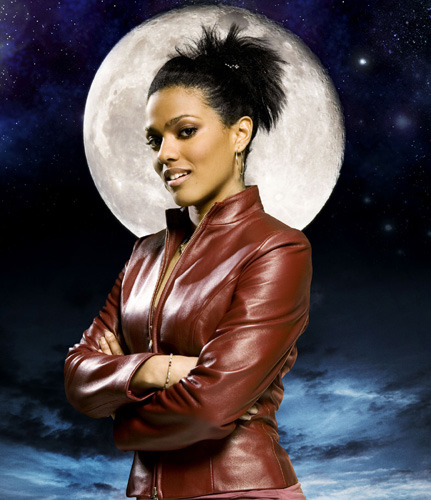
First impressions can be misleading. In many cases, you think a character is awful, but then you see that they are good. The question is, did the character develop, did the writing get better, or did you simply come to view the character in a different light? I'd like to share with you a few examples of characters that I disliked at first, but now appreciate.
Martha Jones (Freema Agyeman)

Fandom: Doctor Who
Reason for initial dislike: she was hopelessly in love with the Doctor. And unlike Rose, her feelings weren't reciprocated, so instead of "look at this cute couple", it was more like "look at this poor lovesick puppy".
Type of change: character development, change of heart
Why I changed my mind: I didn't really like Martha until the last few episodes of series 3, when she proved herself to be independent, intelligent, and highly competent.
Fandom: Doctor Who
Reason for initial dislike: he wasn't the Tenth Doctor. Also, I got mad at him for leaving Amelia Pond - twice!
What type of change: character development and a change of heart. The writing stayed about the same.
Why I changed my mind: As the season progressed, I began to see that though Eleven was different, he was his own unique person to be celebrated. I saw his kindness and compassion, his playfulness, and all his other great attributes. At some point, I decided he was almost as good as Ten. And now I miss him.
Fandom: Doctor Who
Reason for initial dislike: I don't approve of random love interests thrown into a story, and that's how I saw Danny at first. I was mad at Moffat for bringing him in; one companion is enough, and Clara was too preoccupied with the Doctor to take on a boyfriend.
Type of change: character development, better writing, change of heart
Why I changed my mind: I was really worried Danny was going to be a poorly written character, but it turned out that Moffat actually did a good job with Danny (unlike some other characters... *cough cough* Clara *cough cough* Twelve). He reminds me a little of Mickey and a little of Rory, but he's different from both of them. He's really accepting and supportive of Clara, even to the point that he allows her to continue traveling with the Doctor. And he has a fierce loyalty towards Clara, doing everything he can to help her.
Fandom: Merlin
Reason for initial dislike: I agree with Merlin in episode 1 that Arthur is a royal prat. And an arrogant one, too. He's rude and disrespectful, and he expects everyone to do his will. He barely seems to care about others.
Type of change: lots and lots of character development. Maybe a change of heart, too.
Why I changed my mind: As the show progressed, I saw how Merlin began to change Arthur into a better person. I saw that Arthur really cares about his people, and that he will risk his life for that of a servant. He may still be a prat sometimes, but he has a heart of gold.
Fandom: Merlin
Reason for initial dislike: he outlaws magic and executes sorcerers without a second thought, believing that all magic is evil. Even in things not related to magic, he is ruthless. He rules the kingdom with an iron fist.
Type of change: change of heart
Why I changed my mind: as Emily Ecrivaine at Emily Ecrivaine Reviews pointed out in this post, he's only doing what he thinks is best for the kingdom. Though he is a cruel, disillusioned man, his intentions are pure; he truly has Camelot's best interests at heart. I can't say I like him, but I can at least respect him.
Reason for initial dislike: the way Anderson's written, we're supposed to dislike him. He apparently lowers the IQ of the whole street just by talking. He's really annoying and not that bright.
Type of change: change of heart, possibly character development
Why I changed my mind: again, to go too much in depth would be to give away spoilers. Let it suffice to say that Anderson is smarter, kinder, and better than we give him credit for. (For this change of heart, I have Emily Ecrivaine to thank again - this is the post that made me rethink my perspective on him.)
I'd also like to point out that this principle applies to ships as well. The more I see of a ship, the more logical it seems. So now, a few ships that I've come to like.
Reason for initial dislike: I'm not homosexual, and I'm a little hesitant to go along with a gay ship as a result. (Update: I used to be like that. Now, I ship same-sex couples without a second thought.) Also, it's not canon.
How much I ship them now: they're not my OTP or anything, but I definitely read Johnlock fanfiction and I think about Johnlock sometimes.
Why I changed my mind: it's clear they care about each other a lot, and it seems like they are attracted to each other. It's as if they like each other, but don't dare admit it.
Merthur (Merlin (Emrys) and Arthur Pendragon)
Fandom: Merlin
Reason for initial dislike: same reason as for Johnlock. Also, I initially shipped Merlin with Gwen. And then when Gwen got together with Arthur, I shipped Merlin with Morgana - until she went bad.
How much I ship them now: OTP!
Why I changed my mind: they're just so perfect for each other! They complete each other. And each of them would die for the other. They share a close bond (or, as the dragon might call it, destiny).
Reason for initial dislike: I didn't like Rose that much at first (yeah, I know she's not in my list of characters above. That's because I still don't like her that much. It's more like I went from dislike to neutrality.) I didn't think the Doctor should have any romantic attachments.
How much I ship them now: Meh. I kind of ship them. I'll read fanfiction with this ship, but I don't seek it out like I would for some of my other ships (including Johnlock and Merthur).
Why I changed my mind: Idk, I think they're kind of cute together. Also, Rose makes the Doctor a better person.
Philip Anderson (Jonathan Aris)
Fandom: SherlockReason for initial dislike: the way Anderson's written, we're supposed to dislike him. He apparently lowers the IQ of the whole street just by talking. He's really annoying and not that bright.
Type of change: change of heart, possibly character development
Why I changed my mind: again, to go too much in depth would be to give away spoilers. Let it suffice to say that Anderson is smarter, kinder, and better than we give him credit for. (For this change of heart, I have Emily Ecrivaine to thank again - this is the post that made me rethink my perspective on him.)
I'd also like to point out that this principle applies to ships as well. The more I see of a ship, the more logical it seems. So now, a few ships that I've come to like.
Johnlock (Sherlock Holmes and John Watson)
Fandom: SherlockReason for initial dislike: I'm not homosexual, and I'm a little hesitant to go along with a gay ship as a result. (Update: I used to be like that. Now, I ship same-sex couples without a second thought.) Also, it's not canon.
How much I ship them now: they're not my OTP or anything, but I definitely read Johnlock fanfiction and I think about Johnlock sometimes.
Why I changed my mind: it's clear they care about each other a lot, and it seems like they are attracted to each other. It's as if they like each other, but don't dare admit it.
Merthur (Merlin (Emrys) and Arthur Pendragon)
Fandom: Merlin
Reason for initial dislike: same reason as for Johnlock. Also, I initially shipped Merlin with Gwen. And then when Gwen got together with Arthur, I shipped Merlin with Morgana - until she went bad.
How much I ship them now: OTP!
Why I changed my mind: they're just so perfect for each other! They complete each other. And each of them would die for the other. They share a close bond (or, as the dragon might call it, destiny).
The Doctor and Rose (both Nine/Rose and Ten/Rose)
Fandom: Doctor WhoReason for initial dislike: I didn't like Rose that much at first (yeah, I know she's not in my list of characters above. That's because I still don't like her that much. It's more like I went from dislike to neutrality.) I didn't think the Doctor should have any romantic attachments.
How much I ship them now: Meh. I kind of ship them. I'll read fanfiction with this ship, but I don't seek it out like I would for some of my other ships (including Johnlock and Merthur).
Why I changed my mind: Idk, I think they're kind of cute together. Also, Rose makes the Doctor a better person.
Subscribe to:
Posts (Atom)


